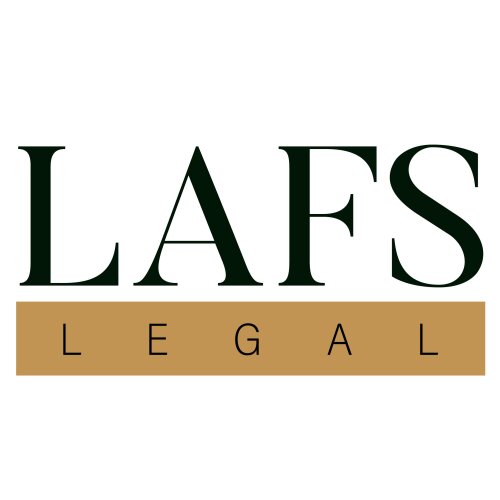Best Brokerage Lawyers in Thailand
Share your needs with us, get contacted by law firms.
Free. Takes 2 min.
Free Guide to Hiring a Real Estate Lawyer
Or refine your search by selecting a city:
List of the best lawyers in Thailand
Legal guides written by SIAM LEGAL INTERNATIONAL:
- Defamation Laws in Thailand: Criminal Charges and Civil Suits
- The State of Thailand’s Long-Term Resident (LTR) Visa Program in 2025
- The Penalties Of Not Filing Your Income Tax Return As A Foreigner In Thailand
About Brokerage Law in Thailand
Brokerage law in Thailand primarily regulates the activities of brokers - individuals or entities that facilitate transactions between a buyer and a seller for a commission fee. In Thailand, brokerage services are most commonly associated with real estate, stock trading, and insurance. The legal framework governing brokerage activities is designed to protect consumers, ensure transparency, and maintain the integrity of the market. Brokers must adhere to specific obligations and standards set forth in Thai laws, which also outline the registration and conduct requirements for brokerage firms and individual brokers.
Why You May Need a Lawyer
There are several situations where you might require legal assistance in the field of brokerage in Thailand:
1. **Starting a Brokerage Business**: Entrepreneurs looking to establish a brokerage business must navigate complex regulations and licensing requirements.
2. **Contract Disputes**: Disagreements over terms, commissions, and contract breaches between brokers and clients can necessitate legal intervention.
3. **Regulatory Compliance**: Ensuring that your brokerage operations comply with Thailand's legal standards is crucial. Non-compliance can result in fines or suspension of your license.
4. **Fraud and Misrepresentation**: Victims of brokerage fraud or misrepresentation can seek legal help to pursue claims and seek damages.
5. **Investment Protection**: Investors may require legal assistance to safeguard their investments and navigate disputes with brokers.
Local Laws Overview
Key aspects of brokerage laws in Thailand include:
- **Licensing**: Brokers must obtain a license from relevant authorities, such as the SEC for securities and the Department of Land for real estate.
- **Disclosure Requirements**: Brokers are obligated to provide full disclosure of all relevant information to their clients.
- **Commission Guidelines**: Laws regulate the payment of commissions and fees, ensuring they are transparent and agreed upon by all parties.
- **Consumer Protection**: Thai laws provide protection against fraudulent activities through strict penalties and enforcement actions.
- **Anti-Money Laundering Compliance**: Brokers must implement measures to prevent money laundering and adhere to financial transaction reporting standards.
Frequently Asked Questions
1. What qualifications are needed to become a broker in Thailand?
Depending on the specific field, brokers often need to pass certain examinations and obtain a license from relevant regulatory authorities.
2. How is brokerage commission determined?
Commission rates are usually agreed upon in the contract between the broker and their client, but they should comply with industry standards and legal regulations.
3. What happens if there's a breach of contract between a broker and a client?
If a breach occurs, the affected party can seek damages through legal proceedings, and a lawyer can help navigate this process.
4. Are foreign nationals allowed to operate brokerage firms in Thailand?
Yes, foreign nationals can operate brokerage firms, but they must adhere to specific licensing requirements and investment restrictions.
5. Is there a governing body for real estate brokers?
Yes, the Real Estate Board of Thailand oversees the activities and licensing of real estate brokers.
6. What are some common legal issues faced by brokers?
Some issues include licensing disputes, consumer complaints, contract breaches, and compliance with anti-fraud regulations.
7. How can I verify if a broker is licensed?
You can verify a broker's license through the online portals of regulatory bodies such as the Securities and Exchange Commission or the Ministry of Commerce.
8. What legal protections are available for investors in brokerage disputes?
Laws in Thailand protect investors from fraudulent practices, providing recourse through legal claims and arbitration.
9. Can brokers be held liable for financial losses?
Brokers can be held liable if losses result from negligence, misrepresentation, or breach of duty.
10. Do Thai laws cover online brokerage services?
Yes, the same legal principles apply to online brokerage services, with additional regulations for digital transactions and cybersecurity.
Additional Resources
Consider consulting the following resources for more information on brokerage in Thailand:
- **Securities and Exchange Commission (SEC)**: Oversees securities trading and brokers.
- **Real Estate Board of Thailand**: Provides guidelines and licensing for real estate brokers.
- **Department of Business Development**: Offers resources for setting up brokerage businesses.
- **Thai Bar Association**: Can provide referrals to qualified lawyers specializing in brokerage law.
Next Steps
If you need legal assistance in brokerage, consider the following steps:
1. **Identify Your Needs**: Determine the specific legal issues you are facing to find a lawyer who specializes in that area.
2. **Consult a Lawyer**: Seek out a legal professional with experience in Thai brokerage laws for advice and representation.
3. **Prepare Documentation**: Gather all relevant documents pertinent to your brokerage issue to help your lawyer provide accurate advice.
4. **Explore Mediation**: For disputes, consider mediation as a first step before pursuing litigation, which can be time-consuming and costly.
Lawzana helps you find the best lawyers and law firms in Thailand through a curated and pre-screened list of qualified legal professionals. Our platform offers rankings and detailed profiles of attorneys and law firms, allowing you to compare based on practice areas, including Brokerage, experience, and client feedback.
Each profile includes a description of the firm's areas of practice, client reviews, team members and partners, year of establishment, spoken languages, office locations, contact information, social media presence, and any published articles or resources. Most firms on our platform speak English and are experienced in both local and international legal matters.
Get a quote from top-rated law firms in Thailand — quickly, securely, and without unnecessary hassle.
Disclaimer:
The information provided on this page is for general informational purposes only and does not constitute legal advice. While we strive to ensure the accuracy and relevance of the content, legal information may change over time, and interpretations of the law can vary. You should always consult with a qualified legal professional for advice specific to your situation.
We disclaim all liability for actions taken or not taken based on the content of this page. If you believe any information is incorrect or outdated, please contact us, and we will review and update it where appropriate.
Browse brokerage law firms by city in Thailand
Refine your search by selecting a city.

















